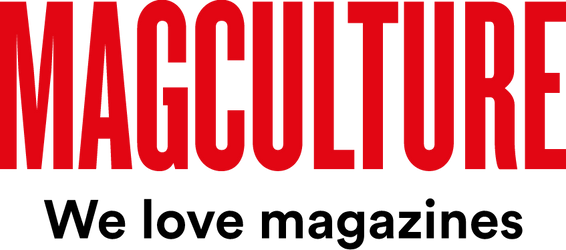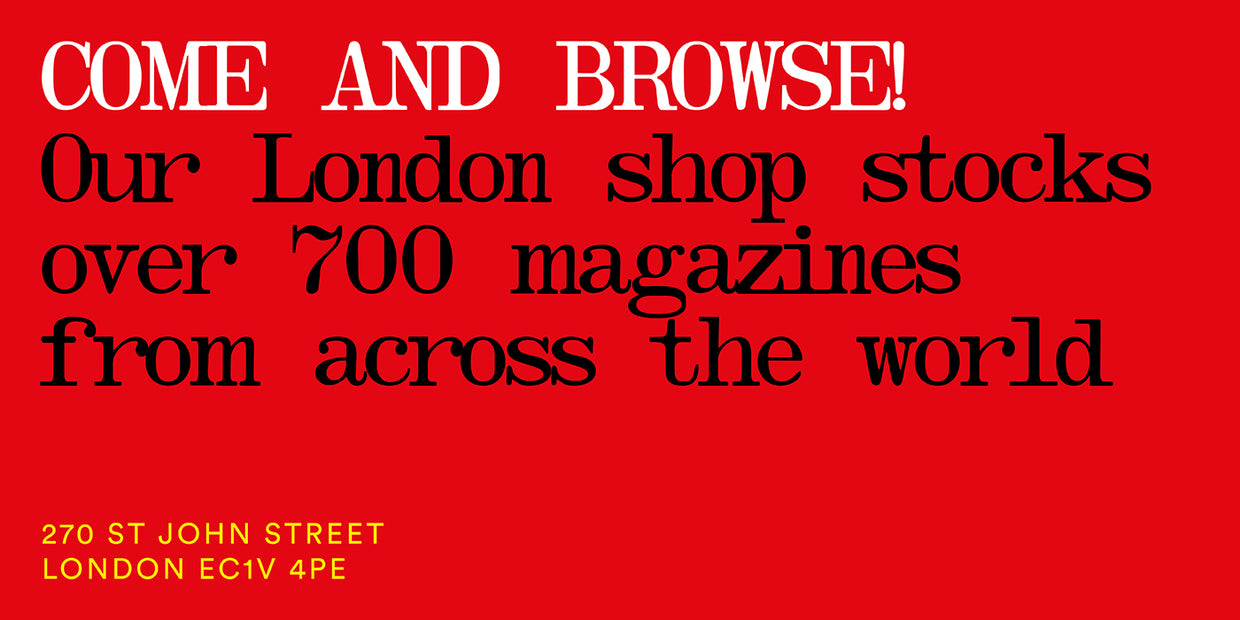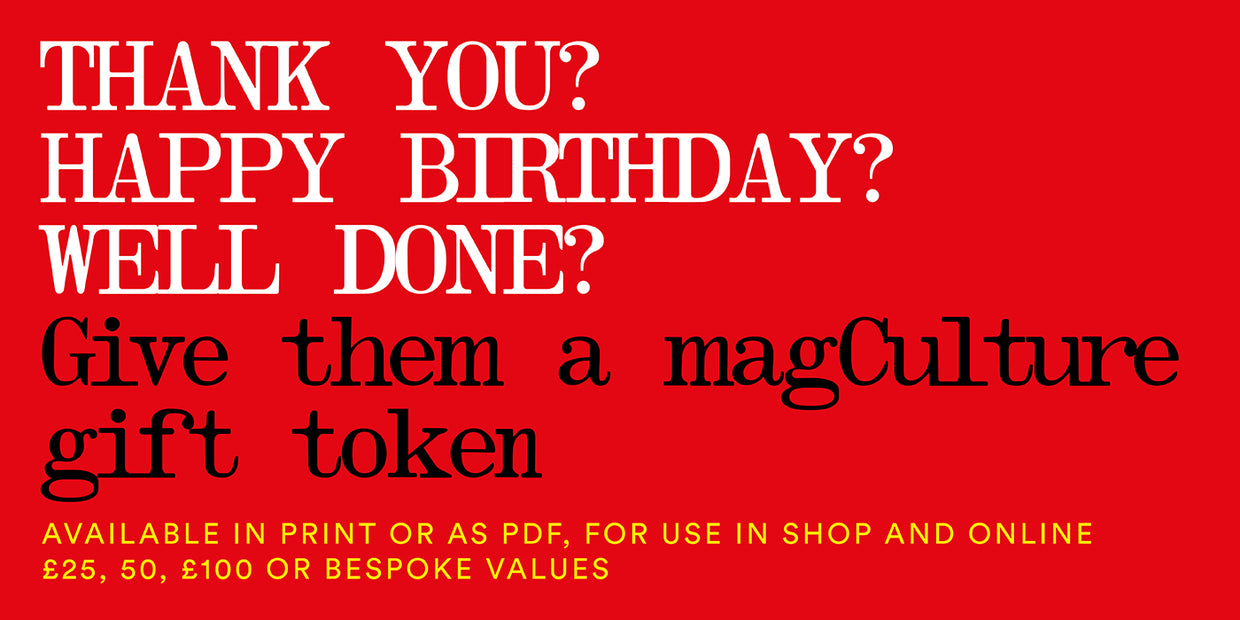
Hear more from Roderick at this year’s ModMag London conference on Thursday 1 November.
Book your ticket now.

Rod Stanley, founder, Good Trouble
The latest of our ModMag speakers to discuss their working week is Rod Stanley, the man behind Good Trouble. Initially only available online, Rod launched a printed version of his ‘celebration of the culture of resistance’ last year, working with Richard Turley to subvert the traditional broadsheet newspaper format. We caught up with him in New York.
Tell us about your typical Monday journey to work
I rise at 2.30am, then work out solidly for two hours. After a session in my cryogenic recovery chamber, I eat a dozen raw eggs, read the Financial Times cover to cover, play a round of golf, and am at my desk at 6.30am, ready to begin the day.
Describe the state of your desk and what you can see in your office
My desk at home usually has a small pile or two of books and magazines I will never get round to reading, some homework I have (unsuccessfully) been trying to persuade my nine-year-old son to do, and three eternally sad-looking chilli plants – red cayenne, ancho grande, serrano – that do not get enough sun, and have steadfastly refused to provide me with one solitary pepper all year, the ungrateful bastards.
Which magazine do you first remember?
Apart from comics like the Beano, the first proper magazine I remember is Amstrad Action. I was maybe nine years old, and it was all about how to play games and do cool stuff with your Amstrad computer (I had a cutting-edge CPC464, with cassette-deck).
It also had pages of hexadecimal machine code you were meant to type in to make a game or something (above), which took hours and hours, and which I never, ever, once got to work. I deeply loved this magazine, and often attempted to make my own version with pieces of squared paper, a stapler and some felt-tips. Special mention should also go to early Viz, which was furtively passed around at school.
Which magazine matters to you the most right now?
I still like Viz. I have no great loyalties, but a few that spring to mind are 032C, Nataal, The Gourmand, Let’s Panic, Dazed, BEAT, Print, Re-Edition, Kaleidoscope, Civilization, Puss Puss, Little White Lies, Intercourse, Marfa Journal, Migrant Journal, anything with the word ‘Journal’ in, I suppose. And it’s digital-only, but The Quietus is quality.
There are plenty of interesting indie mags out there, though I do think people could take greater risks. On the other hand, too many mainstream mags today are stuffed with the same old faces and thinly disguised sponsored content.
Can you describe your magazine in three words?
Large and absorbent?
You've edited big, established mags like Dazed. Why launch your own magazine?
I edited Dazed & Confused for seven years, and had a great time, but felt I was finished with publishing by that point. My attentions have been elsewhere for five years, but the political upheavals of the last couple of years drew me back, as I sensed and hoped there was both a space and a need for a publication to ‘celebrate the culture of resistance’. Most decisions since then have been instinctive, random or responsive to events – there was something about using broadsheet that was appealingly subversive. Though lots of people won’t stock it because of that format, so I guess the joke is on us, really.
Explain the idea of ‘good’ trouble.
It’s people speaking out and taking action for what they believe is right. It comes from a quote by the veteran Congressman and civil rights hero John Lewis: "When you see something that is not right, not fair, not just… you have a moral obligation, a mission and a mandate, to stand up, to speak up and speak out, and get in the way, get in trouble, good trouble, necessary trouble.” With the magazine, I hope to use creative culture to celebrate resistance, shine a light, build networks and generally amplify voices around social change.
What’s it like working with Richard Turley?
He’s a giant, incandescent crystalline entity, an unknowable galactic being. We are good pals, but both busy with our lives, so it’s often a case of just getting on with our bits and each trusting the other.
Good Trouble is numbered in descending order (from issue 23 down). Why?
It felt a bit predictable to call issue one ‘Issue One’. So, I thought it would be fun to set ourselves a nonsensical problem, and then have to figure out how to deal with it later. I guess I like making life difficult. Now we’ve decided to count down, I worked out that if I continue to put out one issue a year, I will eventually reach issue one when I am 64 years old, at which stage I will presumably achieve nirvana and disappear in a blinding flash of light.
What are you looking forward to sharing with the audience at ModMag?
I plan to talk about a few things I learned while going about publishing the ‘wrong’ way and explain why sharing stories and standing up for truth is more important than ever, hopefully without coming over as too wanky or pompous.
Who are you most looking forward to hearing speak alongside you at Modmag on 1 November?
I had not heard of Sabat magazine, but I like the concept (witchcraft and feminism) and am intrigued to hear more. And my mum will be impressed that I’m speaking on the same stage as someone from National Geographic.
What’s going to be the highlight of the week for you?
I have been doing some canvasing this year, for the first time ever, and have discovered that something that seemed initially scary is not only great fun, but also a good way to try to hold onto your sanity in this crazed political climate – through knocking on doors and having real-life conversations, away from the social media scream factory. So, I’m looking forward to heading over to Staten Island again to do some more.
What will you be doing after this chat?
I’m going to have a cup of tea and watch an episode of the Ken Burns Vietnam War documentary series. It’s powerful stuff.
Twitter: @goodtroublemag









